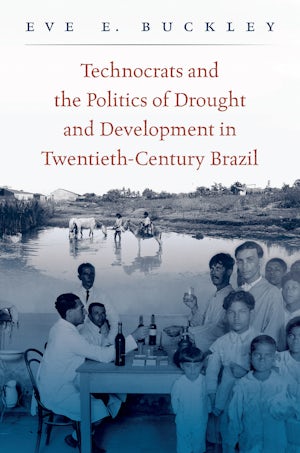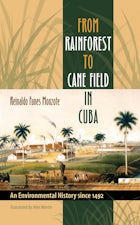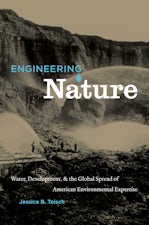Technocrats and the Politics of Drought and Development in Twentieth-Century Brazil
By Eve E. Buckley
298 pp., 6.125 x 9.25, 10 halftones, 2 maps, 1 table, notes, bibl., index
-
Paperback ISBN: 978-1-4696-3430-2
Published: September 2017 -
E-book PDF ISBN: 979-8-8908-5246-5
Published: July 2017 -
E-book EPUB ISBN: 978-1-4696-3431-9
Published: July 2017 -
Hardcover ISBN: 978-1-4696-3429-6
Published: September 2017
Buy this Book
- Paperback $32.50
- Hardcover $99.00
- E-Book $0.00
For Professors:
Free E-Exam Copies
Awards & distinctions
2018 Humanities Book Award, Brazil Section of the Latin American Studies Association
Honorable Mention, 2018 Warren Dean Memorial Prize, Conference on Latin American History
Scientists planned and oversaw huge projects including dam construction, irrigation for small farmers, and public health initiatives. They were, Buckley shows, sincerely determined to solve the drought crisis and improve the lot of poor people in the sertão. Over time, however, they came to the frustrating realization that, despite technology’s tantalizing promise of an apolitical means to end poverty, political collisions among competing stakeholders were inevitable. Buckley’s revelations about technocratic hubris, the unexpected consequences of environmental engineering, and constraints on scientists as agents of social change resonate with today’s hopes that science and technology can solve society’s most pressing dilemmas, including climate change.
Open Access ebook sponsored by an award from the National Endowment for the Humanities Fellowships Open Book Program
About the Author
Eve E. Buckley is associate professor of history at the University of Delaware.
For more information about Eve E. Buckley, visit
the
Author
Page.
Reviews
“A novel interpretation of the politics of drought in the semiarid Northeast of Brazil. It details initiatives for and hindrances to the application of scientific and technological knowledge in order to confront the social and environmental impacts of drought. The research is meticulous, based on a voluminous bibliography as well as on institutional documentary sources. The author builds heavily on the social history of science in order to examine not only the initiatives to fight the droughts but also the geographic region of the Northeast and its inhabitants—the sertanejos—as a policy case.”--Isis Journal
“A sobering assessment of science’s limitations in solving deep-seated social problems, Buckley’s historical monograph is a must-read for students of public policy, environmental planning, and development economics in Latin America and the Global South.”--American Historical Review
"Eve Buckley’s innovative and eloquent book is a model study of how several generations of Brazilian experts sought, with limited success, to solve a chronic problem of development. Buckley weaves a nuanced picture of how the problems of development in Brazil's Northeast were understood in different ways by the administrators in Rio de Janeiro, in the provincial capitals in the Northeast, and especially by the experts on the ground. The book also offers a vivid portrait of what ordinary Brazilians made of the development schemes supposedly designed for their benefit."--Stuart McCook, University of Guelph
"Eve Buckley charts the successive deployments of engineers, agronomists, and economists tasked with solving the enduring problems of Brazil’s sertão in the past century. Exploring how these experts found themselves caught between the rural poor and powerful moneyed interests, Buckley highlights their frustrating recognition that they could not realize their dream of a scientific and politically neutral solution to water scarcity. The book makes important contributions across a range of fields, from Latin American studies to the histories of science, technology, and the environment."--Thomas D. Rogers, Emory University




